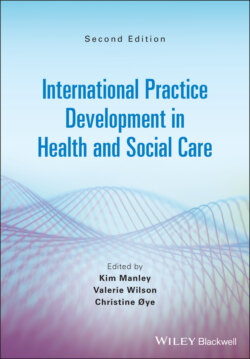Читать книгу International Practice Development in Health and Social Care - Группа авторов - Страница 33
Facilitators’ experiences
ОглавлениеThe health professionals who co‐facilitated courses were expected to participate in the group by drawing on their own lived life rather than re‐stating theoretical definitions and prescriptions about what would be good for other people (Eriksen and Storesund 2019). One facilitator explained: ‘The participants define the concepts, not the professionals’ (Group 2). This was perceived as positive: ‘What is shared is helpful for everyone, both facilitators and participants’ (Group 3). Thus, being a facilitator contributed to personal growth: ‘It led to extended understanding about myself’ (Group 1). Another facilitator reflected: ‘To experience that all of us are at the same level – we are equal – is fantastic!’ (Group 5). At the same time, it was different to what they were used to and this represented a challenge: ‘It is demanding to share and give of yourself… and it must be real’ (Group 5). ‘Everything is turned upside down – it is not defined’ (Group 2). Not having the answer and letting the group decide was unusual for some: ‘It’s hard not to be in control – not knowing what will happen next’ (Group 1).
At the same time, the facilitators (both health workers and persons with lived experience) needed professional skills, as good group facilitation requires a sound facilitation skillset. Acknowledgement and adaption to each person in the group, listening skills and situational awareness were all crucial. They strived to find a balance between giving each person room to share what they wanted and at the same time making sure all participants had time to speak. It has been a great advantage in the courses that many of the facilitators had a lot of experience with working with people. They understood the importance of trustworthiness, being a model, building relationships, and had experience in leading different kinds of groups and courses in the health services. The conscious stance of drawing back and letting the participants support and help each other was something they found very rewarding. Sometimes the group facilitated themselves: ‘It is good to see how the participants become responsible – they correct each other and give each other their opinions about what is not ok’ (Group 5).
A key theme identified in evaluating the programme was that being useful gives meaning in life. This can help to present oneself with a strong identity and help with awareness of one’s strengths (empowerment) and feeling of belonging in a group (connectedness).
